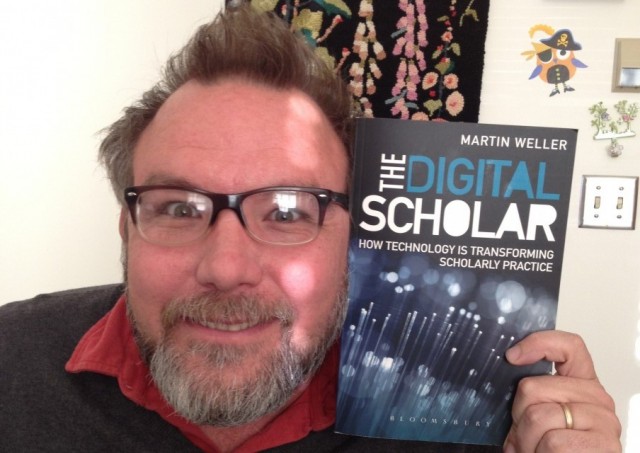We’re lucky to be doing what we’re doing here at the University of Mary Washington. We’ve been on a pretty hot streak for the last seven or eight years when it comes to innovation, and for many of us the Domain of One’s Own is an exciting, authentic culmination of years of work distributed amongst thousands of people. I could come up with a laundry list of things we’ve been working towards over that time period: openness, liberation, fun, alternatives, empowerment, etc.
But the most intelligent and inspired vision of what we’ve been after was recently articulated by Haley Campbell, a UMW senior and ds106 internaut, who absolutely nailed what this moment of teaching and learning through the web means for our faculty and students alike. She frames the realism as the web as departure from the rhetoric of the web as a scary, alterior space to one that we more fully inhabit, take ownership of, and by extension shape and are shaped by. A sense of being on the web that for me is at the heart of Domain of One’s Own. At it’s heart this project is not about an eportfolio or self-promotion or being the first search result on Google—though it can be any and all of those things—its about becoming through this medium, integrating it into the very fabric of your identity both online and off. And the short clip below of Haley talking about the realism of the web brought it all home for me:
Haley Campbell on the Realism of the Web from umwnewmedia on Vimeo.
When you’ve got a spokeswoman like Haley, it’s hard not to get excited about Domain of One’s Own at UMW. And last night was another good example that its quickly moving from collective fantasy to communal reality. We had our Open Dialogue about the initiative and were greeted with upwards of 25 new faculty who are interested in joining a 6-week mini-course this Spring to experiment with their own domains and web host. None of which would be possible without our partnership with Mary Kayler, who runs our Center for Teaching Excellence and Innovation, who has been nothing short of awesome to work with. Through her expertise and excitement we’ve been able to frame this as a much larger teaching and learning initiative that will be supporting faculty technically, pedagogically, and financially ( a holy trinity! 🙂 ). Next up is to try and do just as much for all Freshman come Fall 2013, but more on that in time—baby steps!
What’s even crazier is Mary Kayler came in early this week with a copy of Martin Weller’s The Digital Scholar which she had be reading over the weekend and asked me if I knew this British character from the Open University. I fessed up, and we decided to make it the defining reading of the mini-course for faculty, and hopefully have him talk with the faculty remotely or, even better, here in the flesh in Civilwarland!



I love that! It’s great when world’s collide. The other day I was talking to my new PhD student and noticed she had a certificate on her wall from Chuck Severance’s MOOC – hey I know that guy!
I hope you’ve found all the Bava references in the book, they are sprinkled like space dust on the big dry tongue of academia.
Pingback: A Domain of One’s Own Elevator Pitch? | bavatuesdays
Martin,
Space dust, I’m gonna have to smell the pages of your book again, I missed that high! It was both unexpected and made total sense to hear Mary Kayler talking to me about ideas I have followed through your blog for years. And what is most interesting is without her as someone entering and interpolating this field fresh I might have never realized this was such a natural fit for our faculty. This should have been my idea if you think about it objectively (I was gonna say rationally—but that goes too far for me), but it wasn’t. And that is really interesting to me. What I am learning from working with Mary is how important a fresh perspective on our field and where it is articulated most clearly is for moving forward and keeping the conversation free of too much accumulated conceptual baggage and overdetermined jargon. All of which makes the fact it was your book she was using as a rosetta stone into this space that much cooler. Though I felt a tiny bit vindicated given I’m such a big fan of your 1980s horror movie tastes! I guess that’s what happens when you get too close to the Sun 🙂